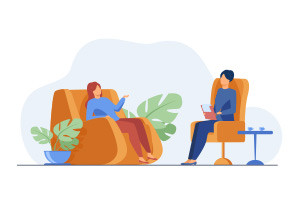ADHD is one of the most common neurodevelopmental disorders of childhood and often lasts into adulthood. Children with ADHD may have trouble paying attention, controlling impulsive behaviors (may act without thinking about what the result will be), or be overly active. It is normal for children to have trouble focusing and behaving at any given time but children with ADHD do not grow out of these behaviors. The symptoms continue, can be severe, and can cause difficulty at school, at home, or with friends. This course identifies those symptoms, how to deal with them and helping the children evolve into an adolescent. ADHD doesn’t discriminate, and it is likely that you live with, work with or know has this condition - perhaps it is you. This course will also give anyone who is unfamiliar with the condition an overview of the struggles those with ADHD deal with.
Scientists have not yet identified the specific causes of ADHD. There is evidence that genetics contribute as three out of four children with ADHD have a relative with the disorder. This course identifies some of the factors that may contribute to the development of ADHD. It has always been accepted that there is a better chance of the condition being largely controlled when it is caught at an early age. This is why there are various problems when there is a later diagnosis, especially when the child has moved into adolescence. This course discusses the problems of a later diagnosis, signs in the adolescent's stage, and how it affects their ability to evolve. Many adults with ADHD do not realize they have the disorder. A comprehensive evaluation typically includes a review of past and current symptoms, a medical exam and history, and the use of adult rating scales or checklists.
Can ADHD be cured? Medication is often an important part of treatment for a child with ADHD. However, it can be a difficult decision to make as a parent. Parents are often afraid of negative side effects or worried about labeling their child with a disorder that may carry negative consequences in their academic life. They may slo feel guilty or ashamed that their child’s condition was their fault in some way. By the end of this course, you will learn about the different approaches to treating ADHD and some of the best medications for it. Having ADHD can create challenges for kids but seeing how others with ADHD have succeeded can be a source of inspiration. This course analyzes some success stories of individuals with ADHD that went on to live the life they wanted.
What You Will Learn In This Free Course
View All Learning Outcomes View Less All Alison courses are free to enrol, study, and complete. To successfully complete this Diploma course and become an Alison Graduate, you need to achieve 80% or higher in each course assessment.
Once you have completed this Diploma course, you have the option to acquire an official Diploma, which is a great way to share your achievement with the world.
Your Alison certificate is:
- Ideal for sharing with potential employers.
- Great for your CV, professional social media profiles, and job applications.
- An indication of your commitment to continuously learn, upskill, and achieve high results.
- An incentive for you to continue empowering yourself through lifelong learning.
Alison offers 2 types of Diploma for completed Diploma courses:
- Digital Diploma: a downloadable Diploma in PDF format immediately available to you when you complete your purchase.
- Physical Diploma: a physical version of your officially branded and security-marked Diploma
All Diplomas are available to purchase through the Alison Shop. For more information on purchasing Alison Diploma, please visit our FAQs. If you decide not to purchase your Alison Diploma, you can still demonstrate your achievement by sharing your Learner Record or Learner Achievement Verification, both of which are accessible from your Account Settings.












 Avg. Hours
Avg. Hours  CPD Accredited
CPD Accredited 
 Total XP:
Total XP: 
 Knowledge & Skills You Will Learn
Knowledge & Skills You Will Learn 






